Tuesday, January 16
| 9:00 a.m.-10:00 a.m. | Coffee, Pastries and Conversation, Cat Cavern We will have coffee and a variety of tempting foods to nibble on while we converse with friends. |
| 10:30–11:30 a.m. | "Welcome from Willamette University," Carol Long, Kaneko Auditorium We will meet our new members and then have a welcoming talk from Carol Long.
|
| 11:30 a.m.–12:30 p.m. | "Salem Public Library's 'Salem Reads' Program," Kate Van Ummersen [Jim McDonald], Kaneko Auditorium
We will learn about the Salem Reads program, including the goals the program attempts to accomplish, how and why Salem Public Library became a part of the national program, the process of selecting each book and how the program's success is measured. Kate Van Ummersen is the Executive Director of the Salem Public Library Foundation. |
| 1:30–3:30 p.m. | "The Implications of Worsening EU-Turkey Relations for Regional Power Transition in Eurasia," Birol Yesilada, PhD [Paul Rice], Kaneko Auditorium This study examines how and why EU-Turkey relations went from good to bad within the last two decades and implications for global power transition. It looks at changing dynamics of Turkey's domestic politics and identifies causal factors in this country's reorientation of its foreign and defense policies. Finally, it will show how Turkey's shift towards a potential alliance with Shanghai Five would affect future of NATO.
|
Thursday, January 18
| 10:30 a.m.-12:30 p.m. | "Music for Social Change," Peter Bergel [Tom Hibbard], Kaneko Auditorium
|
| 1:30 - 2:30 p.m. | "Native American Flutes: More Than Just a Musical Instrument," Barbara McReal [Solveig Holmquist], Kaneko Auditorium
|
| 2:30–3:30 p.m. | "The Oregon State Legislature: A Historical Perspective and Critical Issues," Jackie Winters [Jinx Brandt], Kaneko Auditorium
Senator Winters will discuss how the Oregon Legislature manages being a divided group, how party affiliation affects the workings of the legislature, and how important bi-partisanship is. She will also address critical issues facing the state, including ballot measure 101. She will review recent successes of the Oregon Legislature. Jackie Winters was elected to the Oregon State Legislature in 1998 as the first African-American Republican to achieve this honor. She was re-elected in 2000. She was elected to the Oregon State Senate in 2002 and re-elected in 2006, 2010 and 2014. In 2017 she was elected to the position of Senate Minority Leader. She has lived in Salem for 40 years, has served on numerous boards and commissions, and has received many awards and recognitions. |
Tuesday, January 23
| 10:30 a.m. - 12:30 p.m. | "Not Quite Everything You Need to Know About Refugees in Oregon," Jennifer Barischoff, Moderator, with Anya Holcomb and Allie West [Kay Gerrard], Kaneko Auditorium A panel of representatives of the refugee service organizations in Oregon will provide us with an update of the recent refugee arrivals in Oregon. We will learn who refugees are, where they come from, what resources they have when they arrive, and how services are provided. The panel members are in the front-line of providing services and resources and working with the volunteers who assist refugees. We will also learn about current refugee needs for goods and services.
|
| 1:30 - 3:30 p.m. | Great Decisions: "Latin America's Political Pendulum," Jan Miller and Kay Gerard [Jeanette Flaming] , Kaneko Auditorium
The pendulum of Latin American politics is swinging rightward once again. Yet as the ‘pink tide’ recedes, the forces of change have more to do with socioeconomics than ideology. Dramatic economic and political crises have coincided in countries like Brazil and Venezuela. Still, the final result for Latin America may be the emergence of centrist, pragmatic modes of governance, and with them, opportunities for the U.S. to improve relations. The new administration must look beyond the neoliberal model of the 1990s, and develop an approach to relations fit for the 21st century. Additional resources include our text, p. 79, www.greatdecisions.org/resources. Addition valuable readings in our text are pp. 5 and 6 by the president of the Foreign policy Association and ‘Continuity and Change in American Foreign Policy’ on pp. 7-14. These have not been part of our discussions of the topics, but provide an excellent overview. |
Thursday, January 25
| 10:30 a.m.–12:30 p.m. | "The Joshua Tree Genome Project and Darwin's Abominable Mystery," Chris Smith [Anne Bowden], Kaneko Auditorium Chris’s lecture will describe the biology of the Joshua tree – the iconic plant of the Mojave Desert – and it’s remarkable relationship with a tiny moth. The moths are the only things that will pollinate the Joshua tree, and the trees are the only food source for the moths. Charles Darwin described the relationship between Joshua trees and yucca moths as ‘the most remarkable fertilization system ever described.’ Chris will describe how research by Willamette University undergraduates is solving the mystery of how this pollination mutualism evolved, and how the trees and the moths have changed over time because of their interactions.
|
| 1:30 – 3:30 p.m. | "Voices in Our Heads, Our Intellectual Landscape and the Cosmic Jokes," Michael Strelow [Tom Hibbard], Kaneko Auditorium I'll be bringing my newest book along, Some Assembly Required. It's a novel in the tradition of Kurt Vonnegut with some Jack Kerouac added and then funny (I hope). But it treats serious subjects, and these will be the topic(s) of my talk: A.I (Artificial Intelligence, everything from Alexa to the Spielberg movie--A.I.-- to the coming of robots); fractal art and Modernism (both the abstract creations sold as art and some of the math involved in making fractals); and voices. The voices part includes: the voices we hear in our heads (see The Hearing Voices Movement--non-psychotic voices heard by a percent of the population, see The New Yorker article, Jan. 9, 2017, titled, "The Voices in Our Heads"); the voices that writers hear while writing their books, the characters who come alive in the writing process, etc.; and in the case of my novel, add an A.I. experiment gone wrong in which the experiment appears to speak to the journalist trying to cover the experiment. That voice, Rex, comes to be the star of the book.
|
Tuesday, January 30
| 10:30 a.m.–12:30 p.m. | "The ABCs of Abstraction," Ruth Armitage [Jinx Brandt], Kaneko Auditorium
|
| 1:30–3:30 p.m. | "How Oregon's Correctional System Has Changed Over Time," Frank Thompson [Phil Sperl], Kaneko Auditorium Frank Thompson is credited with bringing a number of innovative approaches to Oregon’s Corrections system that helped improve overall operations. In the area of Human Resources Frank spearheaded activities to establish a policy prohibiting practices of the code of silence among staff. In the area of Jail Administration, Frank led the efforts that created an accredited self-audit Instrument for county jails throughout the state of Oregon. Frank also led the efforts that developed the Inmate performance reward and a non-cash Incentives system that was implemented department-wide.
|


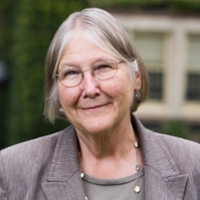 Carol S. Long is Senior Vice President for Academic and Student Affairs. Her work in this newly created position aims to enhance collaboration among the three schools of Willamette University and between student and academic affairs. A Professor of English at Willamette for over 30 years, she also served as department chair, associate dean, and dean in the College of Liberal Arts. She received her Bachelor of Arts in English Literature from Pomona College, and her M.A. and Ph.D. in literature from Northwestern University.
Carol S. Long is Senior Vice President for Academic and Student Affairs. Her work in this newly created position aims to enhance collaboration among the three schools of Willamette University and between student and academic affairs. A Professor of English at Willamette for over 30 years, she also served as department chair, associate dean, and dean in the College of Liberal Arts. She received her Bachelor of Arts in English Literature from Pomona College, and her M.A. and Ph.D. in literature from Northwestern University.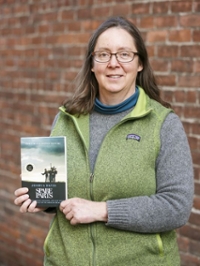
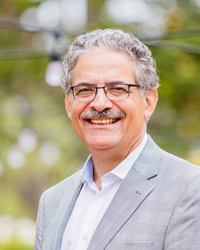 Birol Yesilada, Ph.D. is Professor of Political Science and International Studies & Chair of Contemporary Turkish Studies at Portland State University. He is also Interim Director of the Mark O. Hatfield School of Government at Portland State University.
Birol Yesilada, Ph.D. is Professor of Political Science and International Studies & Chair of Contemporary Turkish Studies at Portland State University. He is also Interim Director of the Mark O. Hatfield School of Government at Portland State University. 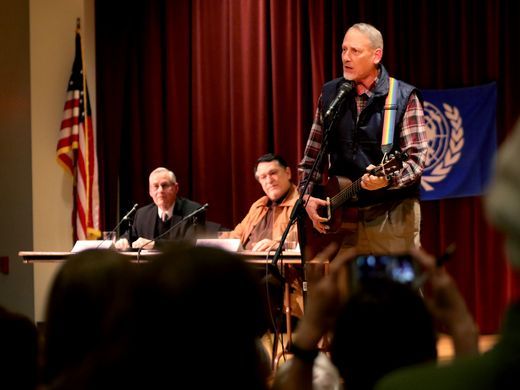 In my first presentation to ICL, I traced the history of music for social change from the Abolition movement through to the present day, illustrating it by performing a selection of songs from each movement. The songs I chose were intended to involve ICL’s participants, who enjoyed the experience. Now I am proposing a second ICL session of music for social change. In this session I will offer a different selection of songs with political content. Some will be humorous, some serious, some popular, some less well known. Again, I will perform them with backup - either by Mark Babson, who accompanied me on fiddle last time, or by another of my musician friends – and will provide words for group participation via Powerpoint as before. In between songs, I will tell stories about the songs and the movements from which they derive. The goal will be to inspire participants to think about social change work and, perhaps, to challenge them to engage more fully in such efforts.
In my first presentation to ICL, I traced the history of music for social change from the Abolition movement through to the present day, illustrating it by performing a selection of songs from each movement. The songs I chose were intended to involve ICL’s participants, who enjoyed the experience. Now I am proposing a second ICL session of music for social change. In this session I will offer a different selection of songs with political content. Some will be humorous, some serious, some popular, some less well known. Again, I will perform them with backup - either by Mark Babson, who accompanied me on fiddle last time, or by another of my musician friends – and will provide words for group participation via Powerpoint as before. In between songs, I will tell stories about the songs and the movements from which they derive. The goal will be to inspire participants to think about social change work and, perhaps, to challenge them to engage more fully in such efforts.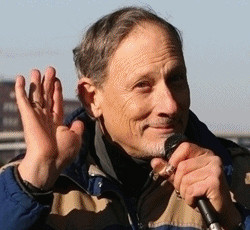 Peter Bergel is the former Executive Director of Oregon PeaceWorks. Since 1988, he has edited ThePeaceWorker, Oregon’s largest peace, justice and environmental newspaper. He holds a degree in physics from Reed College in Portland, OR. He has worked on many initiative campaigns, serving in the top leadership of three. He has also worked on many candidate campaigns, both as a precinct worker and as a local organizer. He has participated in many social change campaigns over more than 4 decades. He served as a Legislative Assistant in the Oregon Legislature in the early 1980s. He has contributed nonviolence training to numerous direct action campaigns, including training for trainers, and has run many courses of study in nonviolence through community groups and local colleges. He served for three years as chairperson and instructor at Salem’s Peace Training Institute, a cooperative effort between citizens and colleges offering comprehensive training to social change agents. For three years he edited Civilian-Based Defense, an international newsletter covering nonviolent alternatives to military-based defense. He has engaged in nonviolent direct action, has been arrested and has served jail time for it. He is a founding member of Dr. Atomic’s Medicine Show, a political satire troupe which has performed in Oregon since 1974 He is a trained community mediator.
Peter Bergel is the former Executive Director of Oregon PeaceWorks. Since 1988, he has edited ThePeaceWorker, Oregon’s largest peace, justice and environmental newspaper. He holds a degree in physics from Reed College in Portland, OR. He has worked on many initiative campaigns, serving in the top leadership of three. He has also worked on many candidate campaigns, both as a precinct worker and as a local organizer. He has participated in many social change campaigns over more than 4 decades. He served as a Legislative Assistant in the Oregon Legislature in the early 1980s. He has contributed nonviolence training to numerous direct action campaigns, including training for trainers, and has run many courses of study in nonviolence through community groups and local colleges. He served for three years as chairperson and instructor at Salem’s Peace Training Institute, a cooperative effort between citizens and colleges offering comprehensive training to social change agents. For three years he edited Civilian-Based Defense, an international newsletter covering nonviolent alternatives to military-based defense. He has engaged in nonviolent direct action, has been arrested and has served jail time for it. He is a founding member of Dr. Atomic’s Medicine Show, a political satire troupe which has performed in Oregon since 1974 He is a trained community mediator.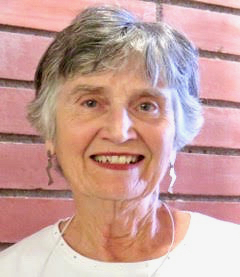 Raised in southeastern Iowa, Barbara McReal moved to Portland when she was 12. She lived in Salem for over 30 years, remarried and moved to Black Butte in the summers and Bermuda Dunes, CA (Palm Springs area) in the winters beginning in 2004. When her husband died in 2007 she decided to stay in the desert, where she was involved in a small theater group and was a Docent at the Living Desert in the butterfly exhibit, giraffe feeding, and eventually became an animal handler. She often played the flute for students touring the North American part of the zoo, which her fellow Docents said "soothed the savage beasts." Returning to Salem after 13 years, Barbara joined ICL in September of 2017.
Raised in southeastern Iowa, Barbara McReal moved to Portland when she was 12. She lived in Salem for over 30 years, remarried and moved to Black Butte in the summers and Bermuda Dunes, CA (Palm Springs area) in the winters beginning in 2004. When her husband died in 2007 she decided to stay in the desert, where she was involved in a small theater group and was a Docent at the Living Desert in the butterfly exhibit, giraffe feeding, and eventually became an animal handler. She often played the flute for students touring the North American part of the zoo, which her fellow Docents said "soothed the savage beasts." Returning to Salem after 13 years, Barbara joined ICL in September of 2017. 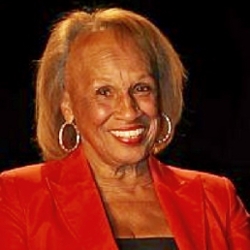
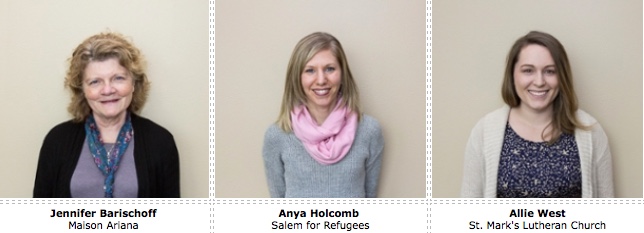
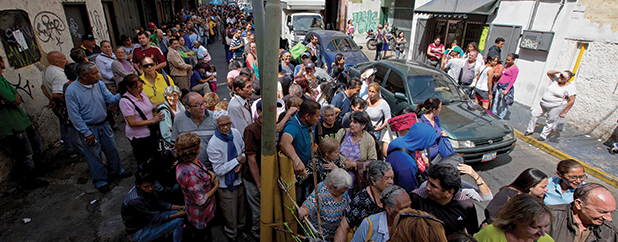
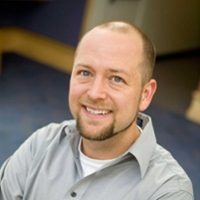 Chris Smith has studied Joshua trees for more than a decade, examining their interaction with yucca moths, their morphology, and their population genetics and genomics. He is an Associate Professor and Chair of Biology at Willamette University. Chris’s work examines the role of ecological processes in shaping evolutionary patterns over both microevolutionary and macroevolutionary time. Chris is particularly interested in exploring ecological and evolutionary questions in the context of interactions between plants and insects.
Chris Smith has studied Joshua trees for more than a decade, examining their interaction with yucca moths, their morphology, and their population genetics and genomics. He is an Associate Professor and Chair of Biology at Willamette University. Chris’s work examines the role of ecological processes in shaping evolutionary patterns over both microevolutionary and macroevolutionary time. Chris is particularly interested in exploring ecological and evolutionary questions in the context of interactions between plants and insects.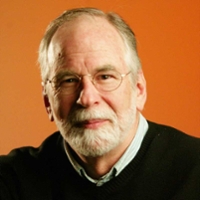 Michael Strelow is a Professor Emeritus in English from Willamette University. His interests include Nineteenth-Century Literature, especially Transcendentalism; Literature and the Environment; Modern American Novel; Theory and Practice of Autobiography; Poetry; Non-Fiction and Fiction Writing.
Michael Strelow is a Professor Emeritus in English from Willamette University. His interests include Nineteenth-Century Literature, especially Transcendentalism; Literature and the Environment; Modern American Novel; Theory and Practice of Autobiography; Poetry; Non-Fiction and Fiction Writing.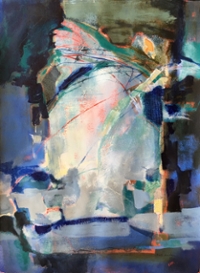 If you’ve never really understood abstract art, this is your chance to be exposed to a different visual language. Learn how Ruth translates her inspiration into abstract painting. Ruth will walk you through the language of abstraction using examples of artists who paint in varying degrees of realistic through non-objective abstraction. You’ll enjoy this former Language Arts instructor’s use of metaphor and simile in describing the creative process. View Ruth’s work in various series to understand how she uses design elements to create expressive, abstract work. Her current series, Down on the Farm, deals with her connection to the land, specifically the family farm. She paints abstracted aerial views of the fields and forests with an emphasis on color, shape and mark making. Rich, vibrant color embellished by narrative and symbolic pencil and brush marks tells the stories of her connection to the land that has been home to her family.
If you’ve never really understood abstract art, this is your chance to be exposed to a different visual language. Learn how Ruth translates her inspiration into abstract painting. Ruth will walk you through the language of abstraction using examples of artists who paint in varying degrees of realistic through non-objective abstraction. You’ll enjoy this former Language Arts instructor’s use of metaphor and simile in describing the creative process. View Ruth’s work in various series to understand how she uses design elements to create expressive, abstract work. Her current series, Down on the Farm, deals with her connection to the land, specifically the family farm. She paints abstracted aerial views of the fields and forests with an emphasis on color, shape and mark making. Rich, vibrant color embellished by narrative and symbolic pencil and brush marks tells the stories of her connection to the land that has been home to her family.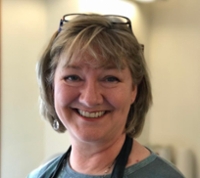 Ruth Armitage is a Signature Member of many prestigious National Watercolor Societies, including, NWS, RMNW, SDWS, NWWS, WFWS, CWA and WW. She is a Past President of the Watercolor Society of Oregon (WSO) and a recipient of their Outstanding Service Award. Ruth Served as WSO’s delegate to the Western Federation of Watercolor Societies and she was Project Manager for the WFWS Regional Exhibition at Jordan Schnitzer Museum of Art in Eugene, Oregon in April, 2017. Most recently she has earned a top award in the 95th National Watercolor Society Annual Exhibition, and been included in the 149th Annual American Watercolor Society Exhibition in New York. Look for a feature article on her work in the Spring, 2016 issue of Acrylic Artist Magazine.
Ruth Armitage is a Signature Member of many prestigious National Watercolor Societies, including, NWS, RMNW, SDWS, NWWS, WFWS, CWA and WW. She is a Past President of the Watercolor Society of Oregon (WSO) and a recipient of their Outstanding Service Award. Ruth Served as WSO’s delegate to the Western Federation of Watercolor Societies and she was Project Manager for the WFWS Regional Exhibition at Jordan Schnitzer Museum of Art in Eugene, Oregon in April, 2017. Most recently she has earned a top award in the 95th National Watercolor Society Annual Exhibition, and been included in the 149th Annual American Watercolor Society Exhibition in New York. Look for a feature article on her work in the Spring, 2016 issue of Acrylic Artist Magazine.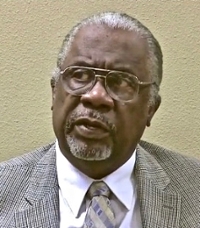 Frank Thompson is a retired Correctional and law enforcement professional who served as Superintendent of the Oregon State Penitentiary from 1994 to 1998. Frank shepherded the state's only maximum security institution through some changing times, including two executions, a voter-mandate to engage all inmates in work programs, increasingly violent prisoners and a state police investigation into criminal activity by staff.
Frank Thompson is a retired Correctional and law enforcement professional who served as Superintendent of the Oregon State Penitentiary from 1994 to 1998. Frank shepherded the state's only maximum security institution through some changing times, including two executions, a voter-mandate to engage all inmates in work programs, increasingly violent prisoners and a state police investigation into criminal activity by staff.